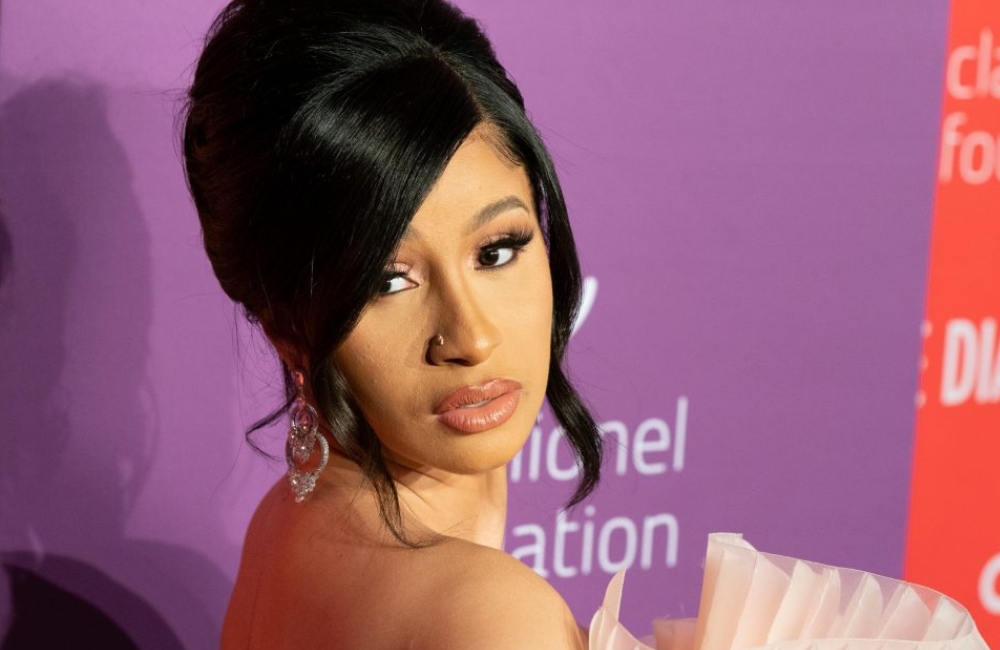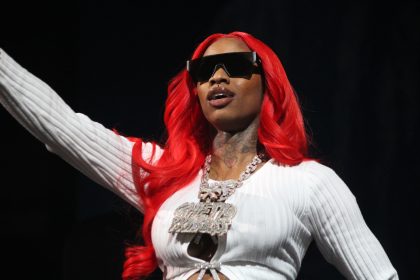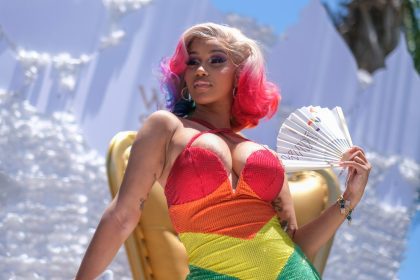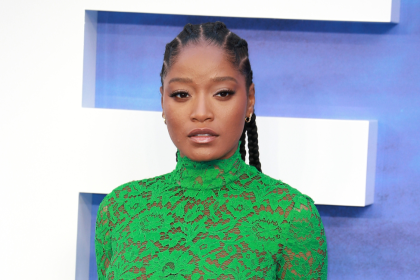In an industry where opulence often takes center stage, Cardi B continues to command attention with her remarkable financial disclosures. The Grammy-winning artist recently revealed her monthly expenditures reach an astounding $3 million, showcasing the magnitude of her success since her meteoric rise to fame. Despite a relative musical hiatus, her earning potential remains robust, evidenced by a reported $65 million tour offer that emphasizes her enduring market value.
Her journey from social media personality to hip-hop royalty exemplifies a modern success story. Beginning her career as an influential voice on platforms like Instagram and Vine, Cardi B transformed her digital following into musical acclaim with the release of “Bodak Yellow” in 2017. This transition marked the beginning of her financial ascent, culminating in her current status as one of music’s highest-earning performers.
The artist’s portfolio extends far beyond music, encompassing lucrative brand partnerships, merchandise lines, and strategic investments. Her business acumen has led to collaborations with fashion giants and beauty brands, creating multiple revenue streams that justify her substantial monthly expenses. These ventures demonstrate her evolution from performer to entrepreneur, a path increasingly common among modern hip-hop artists.
Waves of controversy hit close to home
The revelation of Cardi‘s substantial spending has triggered an unexpected ripple effect within her professional circle. SwiftOnDemand, a producer from her earlier career phase, publicly challenged the artist’s financial priorities through a pointed social media statement. His expression of disappointment regarding their past professional relationship has unveiled a complex dynamic that often remains hidden in the music industry’s shadows.
This dispute highlights the intricate web of relationships that support an artist’s rise to fame. Early career collaborators often play crucial roles in developing an artist’s sound and style, contributing to their eventual success. The transition from struggling artist to global superstar can strain these relationships, particularly when financial expectations and professional recognition come into play.
Breaking down the battle lines
The conflict centers on SwiftOnDemand’s assertions of unfulfilled promises, contrasting sharply with Cardi B’s stance on professional independence. The artist maintains that contractual obligations with their former management company restrict her control over their collaborative work, effectively separating their professional trajectories. Her prioritization of family responsibilities, including her three children, stands firm against expectations of continued professional support.
This situation reflects a common scenario in the music industry where early career agreements can have long-lasting implications. Artists often sign contracts with various parties during their rise to fame, creating a complex web of obligations and restrictions that can impact future collaborations and financial decisions. The legal framework surrounding music rights and ownership adds another layer of complexity to these professional relationships.
The producer’s perspective
SwiftOnDemand’s position reflects a common industry narrative where early collaborators seek ongoing recognition as artists achieve mainstream success. His concerns extend beyond simple monetary compensation, delving into questions of creative attribution and professional acknowledgment. The producer, himself a parent of three, emphasizes the value of professional credibility and questions the nature of independent artistic success in today’s music landscape.
The role of producers in hip-hop has evolved significantly over the years, from behind-the-scenes craftsmen to influential figures in their own right. Modern producers often expect not just financial compensation but also public recognition and opportunities for career advancement. This shift in expectations has created new dynamics in artist-producer relationships, particularly when early collaborators feel disconnected from an artist’s later success.
Industry implications and expectations
This public disagreement illuminates broader issues within the music industry’s collaborative framework. The incident raises critical questions about the longevity of professional relationships and the evolution of obligations as careers progress. It challenges traditional notions of loyalty while highlighting the complex balance between personal success and professional obligations.
The music industry’s rapid transformation in the digital age has fundamentally altered how success is achieved and maintained. Social media platforms have become crucial tools for building and maintaining an artist’s brand, while also serving as forums for public disputes and controversy. This new landscape has created additional pressures on artists to manage their public image while navigating complex professional relationships.
Financial transparency in modern hip-hop
The controversy surrounding Cardi B’s financial declarations extends beyond personal disputes, touching on the broader discourse of wealth display in hip-hop culture. While the genre has historically celebrated financial success, modern artists face increased scrutiny over their monetary claims and spending habits. This situation emphasizes the delicate balance between maintaining an aspirational image and managing industry relationships.
Social media has amplified the visibility of artists’ wealth, creating new expectations for transparency and authenticity. The practice of displaying luxury lifestyles, once limited to music videos and public appearances, now occurs in real-time through platforms like Instagram and Twitter. This constant exposure can create tensions between artists and their former collaborators, who may feel entitled to share in the visible success they helped create.
The ongoing tension between Cardi B and SwiftOnDemand represents more than a personal dispute; it mirrors the evolving dynamics of success, loyalty, and responsibility in contemporary hip-hop. As the industry continues to evolve, these interactions may shape future expectations for artist-producer relationships and financial transparency in the music business.














